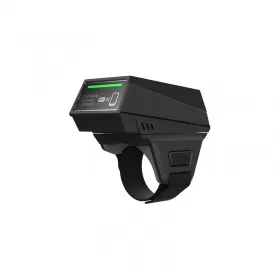How does a wireless barcode scanner work?
In the realm of modern retail, logistics, and inventory management, wireless barcode scanners have become indispensable tools, streamlining processes and enhancing efficiency. But have you ever wondered about the wizardry behind these handheld devices? Let's unveil the secrets and understand how wireless barcode scanners work.
1. The Basics of Barcodes:
Unique Identifiers: Barcodes are graphical representations of data that encode information in a visual pattern of parallel lines.
Universal Language: They serve as unique identifiers for products, with each barcode holding specific details about an item.
2. Components of a Wireless Barcode Scanner:
Scanner Head: The optical component responsible for reading the barcode.
Decoding Circuitry: Converts the optical data into a digital signal.
Radio Frequency (RF) Module: Enables wireless communication with a central system.
Battery: Powers the scanner for mobility.
3. Optical Magic: How Scanners Read Barcodes:
Light Source: The scanner emits light onto the barcode, either through an LED or a laser diode.
Barcode Reflection: The light reflects off the contrasting spaces and bars of the barcode.
Photodiode Array: Detects the reflected light, converting it into an electrical signal.
4. Decoding the Signal:
Analog to Digital Conversion: The electrical signal is converted from analog to digital within the scanner.
Pattern Recognition: The digital signal is processed by decoding circuitry, recognizing the pattern of bars and spaces.
5. Wireless Communication:
RF Technology: Wireless barcode scanners use radio frequency technology to communicate with a central system.
Bluetooth or Wi-Fi: Common wireless protocols enable seamless connectivity.
6. Working in Harmony:
Handheld Mobility: Wireless scanners offer the flexibility to move around without being tethered to a physical connection.
Real-Time Data Transfer: Scanned data is instantly transmitted to a connected device or central database.
7. Applications in Various Industries:
Retail: Quick and accurate checkout processes.
Logistics and Warehousing: Efficient inventory management and order fulfillment.
Healthcare: Patient identification and medication tracking.
Manufacturing: Traceability of components and products.
8. Advantages of Wireless Barcode Scanners:
- 212
- 0
- 0


